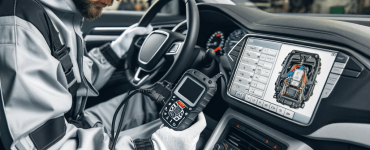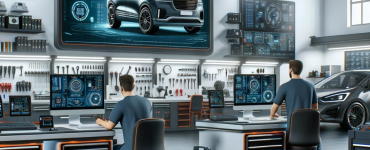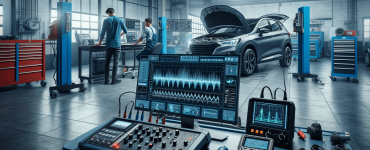Diagnosing Fuel System Issues in Performance Vehicles
Fuel system issues can be a major headache for car enthusiasts and professionals alike. Understanding the nuances of diagnosing these problems is crucial, especially in high-performance vehicles where precision and efficiency are key. This guide will delve into the common symptoms, diagnostic methods, and solutions for fuel system issues, providing valuable insights for anyone passionate about automotive tuning and repair.

Introduction to Fuel System Diagnostics
The fuel system in your vehicle plays a vital role in delivering fuel from the tank to the engine. It includes several components like the fuel pump, fuel injectors, fuel lines, and the fuel filter. Any issue with these components can lead to performance problems. Diagnosing these issues accurately is crucial for maintaining the optimal performance of your vehicle.
Key Symptoms of Fuel System Issues
- Engine Misfires: Occurs when the engine fails to ignite the fuel correctly, leading to uneven power delivery.
- Poor Acceleration: If your vehicle is sluggish or unresponsive during acceleration, it could be a fuel delivery problem.
- Stalling or Rough Idling: This can be caused by insufficient or irregular fuel supply to the engine.
- Decreased Fuel Efficiency: Sudden drops in fuel efficiency can indicate a problem within the fuel system.
Diagnostic Techniques
1. Visual Inspection
- Fuel Lines and Connections: Check for any visible leaks or damage.
- Fuel Filter: Look for clogs or dirt which could obstruct fuel flow.
2. Using Diagnostic Tools
- OBD-II Scanner Usage: An essential tool for reading error codes that can pinpoint issues in the fuel system.
- Fuel Pressure Test: Measures the pressure in the fuel lines to ensure it’s within the required range.
- Injector Performance Test: Checks if the fuel injectors are operating correctly.
3. Professional Assistance
- In complex cases, consulting with a professional mechanic or a tuning expert is advisable.
Common Causes and Solutions

| Cause | Solution |
|---|---|
| Clogged Fuel Filter | Replace the fuel filter. |
| Faulty Fuel Pump | Inspect and replace if necessary. |
| Dirty or Faulty Injectors | Clean or replace the injectors. |
| Damaged Fuel Lines | Repair or replace the damaged sections. |
Preventative Measures and Maintenance Tips
- Regular Check-Ups: Schedule regular maintenance to catch issues early.
- Quality Fuel: Use high-quality fuel to reduce the risk of clogs and deposits.
- Fuel System Cleaners: Incorporate additives that help keep the system clean.
Conclusion about diagnosing fuel system issues
Timely diagnosis and repair of fuel system issues are crucial for the performance and longevity of your vehicle. Utilizing diagnostic tools and understanding the common symptoms can greatly aid in accurately pinpointing and resolving these issues.
Q&A Table: Diagnosing Fuel System Issues
| Question | Answer |
|---|---|
| What are common symptoms of fuel system issues? | Symptoms include engine misfires, poor acceleration, stalling or rough idling, and decreased fuel efficiency. |
| How can an OBD-II scanner help? | An OBD-II scanner can read error codes to identify specific issues in the fuel system. |
| What should I check during a visual inspection? | Inspect fuel lines, connections, and the fuel filter for leaks, damage, or clogs. |
| How do I test fuel pressure? | Use a fuel pressure gauge to measure the pressure in the fuel lines, ensuring it’s within the vehicle’s specified range. |
| What if I find a clogged fuel filter? | Replace the fuel filter to restore proper fuel flow. |
| Can dirty injectors cause fuel system problems? | Yes, dirty or faulty injectors can disrupt fuel delivery. Clean or replace them as needed. |
| Is regular maintenance important? | Regular maintenance, including fuel system diagnostics, is crucial to prevent and catch issues early. |
| How does the quality of fuel affect the system? | High-quality fuel minimizes the risk of clogs and deposits in the fuel system. |
| When should I seek professional help? | If diagnostic tools don’t pinpoint the issue or if the repair is complex, consult a professional mechanic. |




